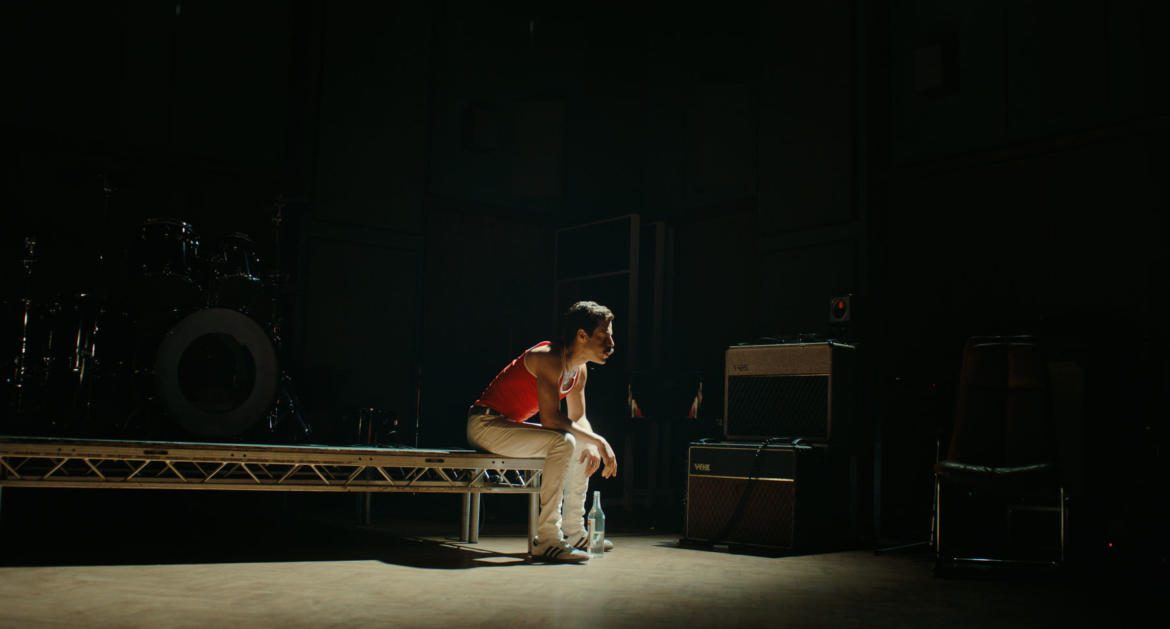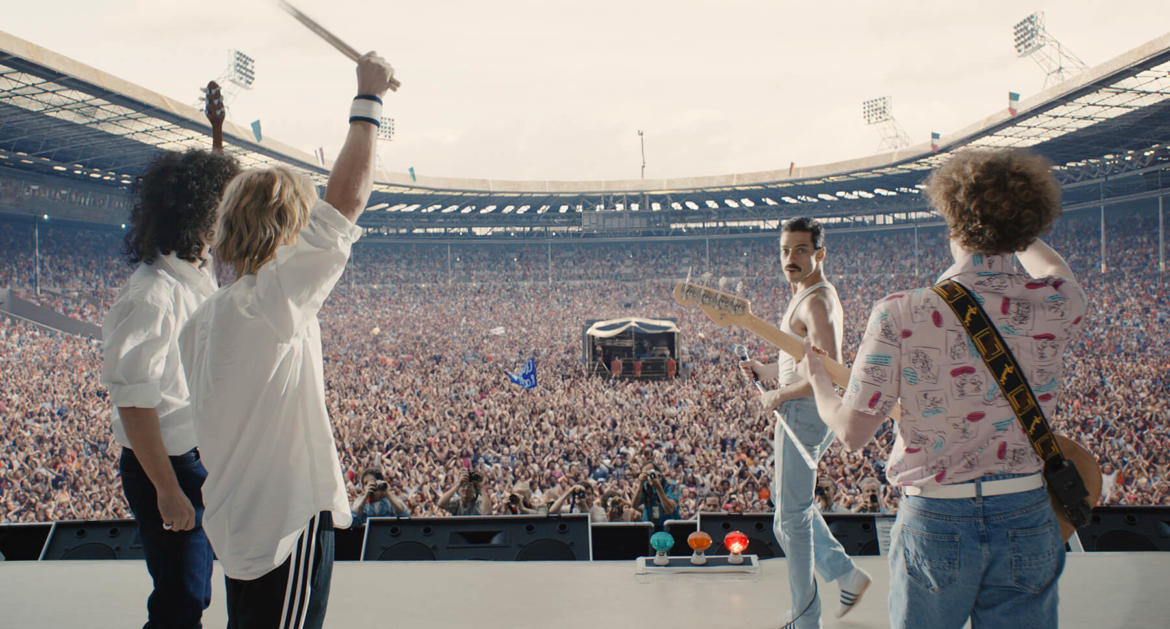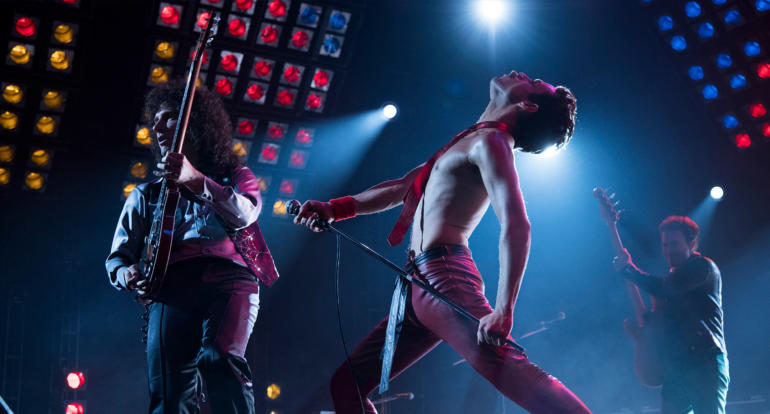I hate to admit but I’m a fan of Queen and have been one since my father let me listen to their first greatest hits album in the early 1980s. No one really knows this about me since I’ve kept my fanhood closeted. They’re the closest thing I have that’s a guilty pleasure. But I’m too old to care anymore. I was secretly very excited when I heard “Bohemian Rhapsody” the biopic about the band was being made.
Ahmad Coo is a producer and copy editor for the Global Business show on CGTN America. His analysis represents his views alone.
Sadly, the film couldn’t live up to the hype. But I can’t think of any feature film that does justice to the legacy of any band, although documentaries are another matter. It’s unfair to expect that any director would be able to successfully distill the greatness of a band like Queen into a 90-120-minute feature film and not have it suck.
“Bohemian Rhapsody” may be a mess — but still worth checking out. I’m not very familiar with Queen’s history, but the director Bryan Singer has made the band’s backstory feel apocryphal. For example, it may have been true that the late Freddie Mercury approached Brian May and Roger Taylor after their original lead singer quit on them after some horribly mediocre gig and asked to be their new frontman.
But the scene and the dialogue that goes with it seems too contrived and clever to be believable. Unfortunately, the whole movie feels like the writers and producers took liberties in embellishing Queen’s history.
Putting those plot problems aside, “Bohemian Rhapsody” is worth seeing because of Rami Malek.

Rami Malek (as Freddie Mercury) Credit: 20th Century Fox
It’s hard not to get enamored with Malek. He seemingly came out of nowhere in his breakthrough role as a misanthropic computer hacker in the hit television show “Mr. Robot”. He commands attention in every scene he’s in. He doesn’t have conventional Hollywood movie-star looks, but I’ve never seen anyone act so effectively with one’s eyes, and this is in full display in “Bohemian Rhapsody”.
Lines are almost unnecessary for Malek, because he can convey a range of emotions — from rage to love — with a bat of an eyelash or an eye roll. He thoroughly outshines his co-stars, who could have all been played by cardboard cutouts. They’re that bad.
It also helped that “Bohemian Rhapsody” felt like a series of slickly produced music videos, all highlighting Queen’s biggest hits.
Bryan Singer is a master of flashy images, even if he’s lacking sorely in narrative technique. The movie could have had a lot more substance by delving deeper into the interior lives of the band’s members, specifically Freddie Mercury.
But the remastering of the original source music and the refreshing take on some the band’s best-known songs make up for the lack of depth, and both are worth the price of the admission.
Singer and his producers make up for their storytelling deficiencies by focusing on Queen’s music and making it as visually appealing as possible. They do this by recreating some pretty impressive set pieces detailing the origins of the group’s biggest hits, none more interesting than the creative process behind the movie’s namesake “Bohemian Rhapsody”.
If you’re not familiar with Queen’s music, they’re among the first rock and roll bands who tried to merge opera and rock and roll, which led to the group’s first No. 1 hit in the U.K. — “Bohemian Rhapsody”. The song was later included in their breakthrough record “A Night at the Opera”, an album that announced their arrival as the musical avant garde.
In the same era that saw the rise of bands like Led Zeppelin, The Who, Cream, and Black Sabbath, Freddie Mercury was the breath of fresh air compared to his over-sexed macho counterparts like Ozzy Osborne, Roger Daltry, and Robert Plant. If I’m not mistaken, the 70s weren’t really known as a golden age of LGBTQ rights, so Mercury’s unlikely rise was just that more astonishing, given his flamboyance, which some of his detractors said was ‘camp’.
But it was Mercury what made Queen a genre defying/breaking band. For example, how does a band in that era sing about “Fat-Bottomed Girls” (the actual name of a hit Queen song) and manage not to sound misogynist and sexist, but actually promote body-type positivity?

Gwilym Lee (as Brian May), Ben Hardy (as Roger Taylor), Rami Malek (as Freddie Mercury), and Joseph Mazzello (as John Deacon) Credit: 20th Century Fox
The main highlight of the film is the reenactment of Queen’s amazing set at Live Aid in 1985. I actually watched the live broadcast in the Philippines. I still remember Mercury’s electric performance as he started playing the first few notes of “Bohemian Rhapsody”, which made the hair on my arms stand on end.
In the film version of Queen’s set at Live Aid, Rami Malek made me forget I was watching a scene from a movie, and in that sequence he became Freddie Mercury, mimicking every pout, pose and facial expression. It was something to behold, the fabulous ghost of one of the greatest rock frontmen ever, giving his fans one more performance to marvel at.
 CGTN America
CGTN America Gwilym Lee (as Brian May), Rami Malek (as Freddie Mercury), Joseph Mazello (as John Deacon) Credit: 20th Century Fox
Gwilym Lee (as Brian May), Rami Malek (as Freddie Mercury), Joseph Mazello (as John Deacon) Credit: 20th Century Fox

